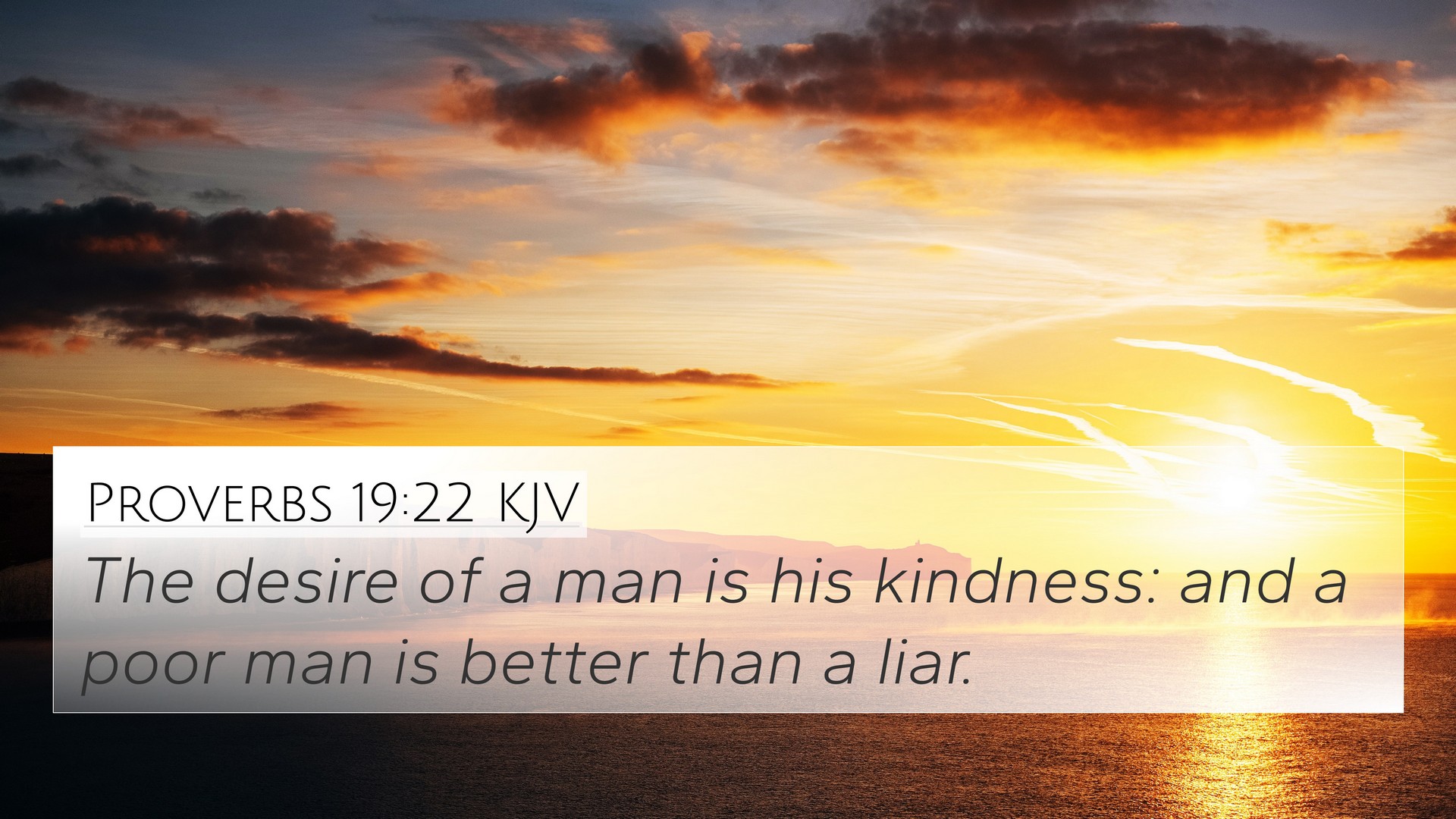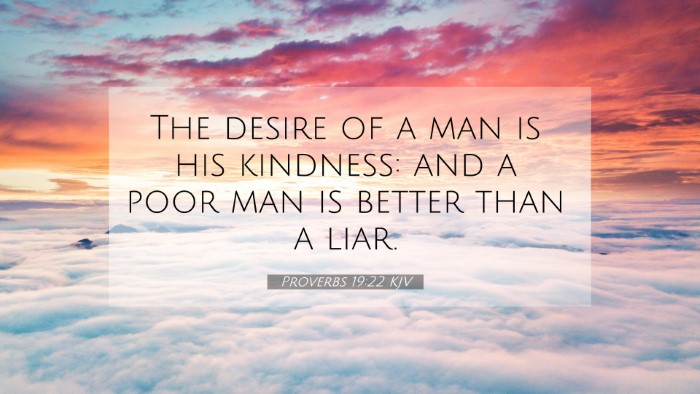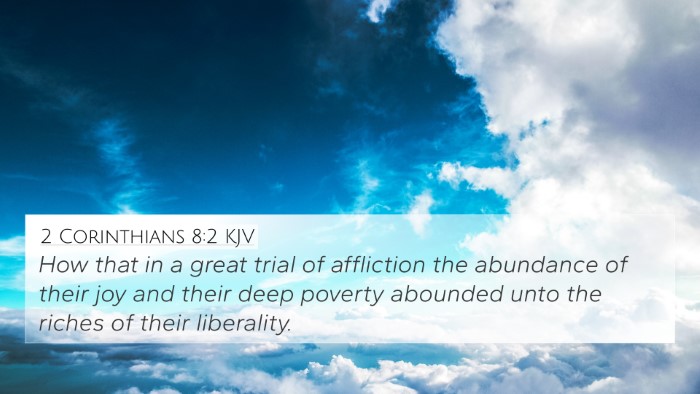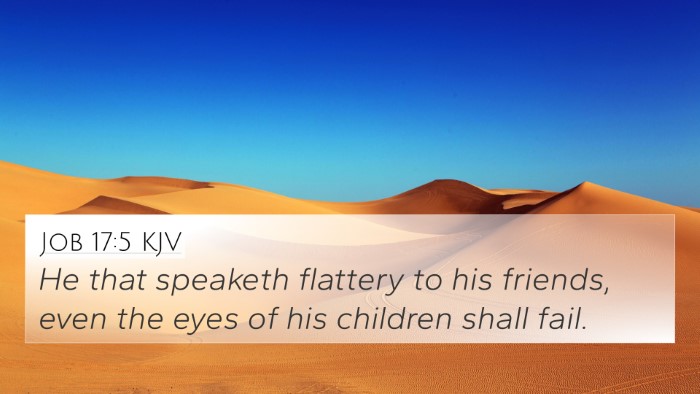Understanding Proverbs 19:22
Bible Verse: Proverbs 19:22 - "What is desired in a man is kindness, and a poor man is better than a liar."
Overview of the Verse
In this verse, King Solomon highlights two essential qualities that are juxtaposed: the value of kindness and the detrimental nature of lying. It underscores the importance of integrity in a person's character, noting that genuine kindness is more valuable than wealth, particularly when compared to deceit.
Commentary Insights
Matthew Henry's Commentary
Matthew Henry expresses that kindness is at the core of human nature and relationships. True kindness fosters trust and harmony in interactions. He notes that while one may desire wealth or status, these desires should never outweigh the virtue of kindness. Furthermore, he emphasizes that honesty is paramount, stating that having a poor man who is truthful and kind is preferable to a wealthy liar.
Albert Barnes' Commentary
Albert Barnes elaborates on the implications of kindness in human interactions. He argues that the desire for kindness reflects a deeper longing for authentic relationships. The contrast between a “poor” man and a “liar” serves as a critique of societal values that prioritize material wealth over moral integrity. Barnes posits that it’s better to possess genuine traits of character than to seek riches through deceit.
Adam Clarke's Commentary
Adam Clarke provides a linguistic analysis of the original Hebrew words used in this verse. He highlights that the term for "kindness" may refer to a form of lovingkindness or steadfast love. Clarke reinforces the view that the essence of this proverb demonstrates the esteem in which honest, kind individuals are held, regardless of their financial status.
Cross-References and Related Scriptures
This verse connects with several other scriptures, illustrating thematic Bible verse connections related to integrity and kindness:
- Proverbs 14:5: "A faithful witness will not lie: but a false witness will utter lies."
- Proverbs 21:3: "To do justice and judgment is more acceptable to the Lord than sacrifice."
- Luke 6:31: "And as you wish that others would do to you, do so to them."
- Proverbs 11:1: "A false balance is abomination to the Lord: but a just weight is his delight."
- Micah 6:8: "He hath shewed thee, O man, what is good; and what doth the Lord require of thee, but to do justly, and to love mercy, and to walk humbly with thy God?"
- Proverbs 15:16: "Better is little with the fear of the Lord than great treasure and trouble therewith."
- 1 Peter 3:10: "For he that will love life, and see good days, let him refrain his tongue from evil, and his lips that they speak no guile."
Inter-Biblical Dialogue: Thematic Connections
The verse's sentiment aligns with numerous teachings across both the Old and New Testaments, encouraging integrity, kindness, and the rejection of deceit. The teachings of Jesus, particularly in the Beatitudes, expand on these themes, fostering a biblical dialogue on moral sincerity and the value of a kind heart.
Conclusion
Proverbs 19:22 serves as a profound reminder that kindness and integrity are invaluable virtues in human character. Despite societal views that may prize wealth over honesty, this verse challenges us to reflect on our true desires and the lasting impact of our moral choices. Emphasizing biblical cross-references provides a comprehensive framework for understanding the interconnectedness of these values throughout scripture.
Resources for Further Study
For those interested in exploring cross-referencing Bible study methods, consider utilizing tools such as:
- Bible concordance
- Bible cross-reference guide
- Bible reference resources
- Cross-reference Bible study tools
- Comprehensive Bible cross-reference materials














